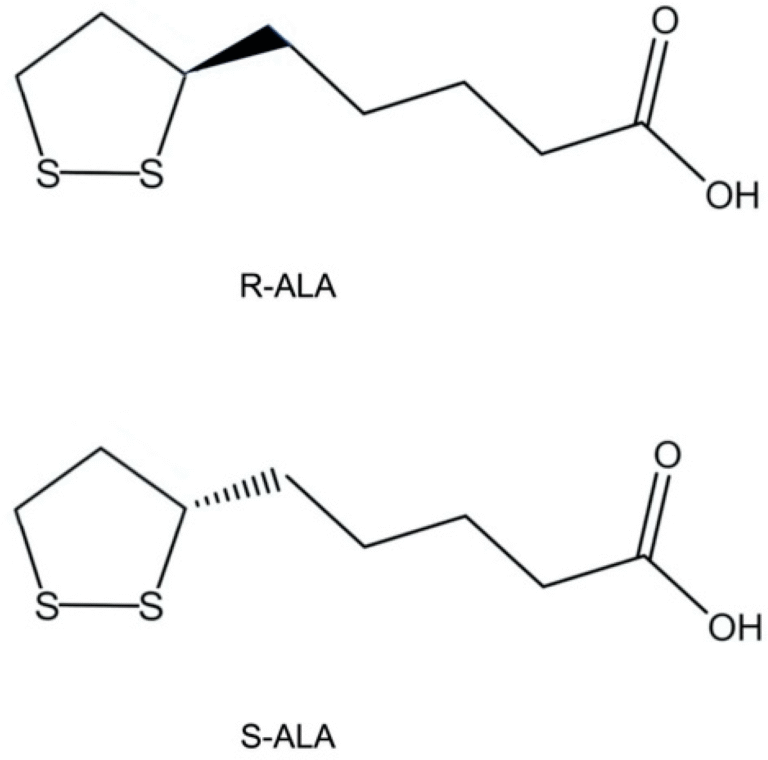What Is Alpha Lipoic Acid (ALA)?
Alpha Lipoic Acid (ALA) is a naturally occurring sulfur-containing compound that functions as both a coenzyme and a universal antioxidant. It plays a critical role in energy metabolism, mitochondrial function, and cellular protection.
Unlike most antioxidants, ALA is both water- and fat-soluble, allowing it to work in every part of the cell—neutralizing free radicals, regenerating other antioxidants (like vitamins C and E), and supporting detoxification processes. It is synthesized in small amounts in the human body and also found in foods such as spinach, broccoli, and organ meats, but therapeutic benefits are typically achieved through supplementation.
How It Works
Alpha Lipoic Acid acts as a cofactor in mitochondrial enzyme complexes essential for converting carbohydrates into energy. It also serves as a redox modulator, balancing oxidation and reduction reactions across cellular compartments.
At the cellular level, ALA has been shown to:
-
Support mitochondrial ATP production, enhancing energy generation and endurance
-
Regenerate antioxidants, restoring oxidized forms of vitamin C, vitamin E, and glutathione
-
Activate Nrf2 pathways, stimulating the body’s natural detoxification and antioxidant defenses
-
Improve insulin sensitivity, aiding glucose transport and metabolic efficiency
-
Chelate heavy metals, binding and facilitating the removal of mercury, arsenic, and other toxic elements
-
Modulate inflammation, by downregulating NF-κB and pro-inflammatory cytokines
-
Protect neurons and endothelial cells, supporting brain and vascular health
These combined mechanisms make ALA one of the most versatile and powerful antioxidants available in both clinical and integrative medicine.
Health Benefits
Extensive research supports Alpha Lipoic Acid’s diverse physiological benefits, including:
-
Cellular energy and mitochondrial support, improving stamina and reducing oxidative fatigue
-
Glucose and insulin regulation, supporting healthy blood sugar balance
-
Neuroprotection, through antioxidant and mitochondrial effects that preserve nerve integrity
-
Detoxification and liver support, by binding heavy metals and regenerating glutathione
-
Cardiovascular protection, improving endothelial function and reducing oxidative LDL stress
-
Anti-inflammatory and anti-aging effects, via modulation of redox-sensitive gene expression
-
Adjunctive oncology and metabolic research, where ALA’s ability to enhance mitochondrial efficiency and reduce oxidative burden is explored
-
Skin health and collagen protection, by reducing glycation and promoting tissue elasticity
Because of its unique ability to cross the blood–brain barrier, ALA is especially valued in neurological and cognitive health applications.
Sources and Supplementation
Alpha Lipoic Acid is naturally found in small amounts in spinach, broccoli, Brussels sprouts, liver, and red meat, but levels achieved through diet are modest.
Supplemental forms include:
-
R-ALA (R-alpha lipoic acid) – the naturally occurring, biologically active form with superior bioavailability
-
S-ALA or racemic mixtures – less active forms but commonly used in general antioxidant supplements
-
Stabilized R-ALA (Na-R-ALA) – a salt form that improves stability and absorption
Typical dosages range from 100–600 mg daily, depending on therapeutic goals. For advanced applications—such as metabolic, neurological, or detox protocols—ALA may be combined with:
-
Acetyl-L-carnitine (ALC), for synergistic mitochondrial support
-
N-acetylcysteine (NAC) and glutathione, to enhance redox and detoxification networks
-
B-vitamins and magnesium, to optimize energy and enzyme function
-
Coenzyme Q10, to further support mitochondrial respiration and antioxidant protection
Summary
Alpha Lipoic Acid is a master antioxidant and metabolic cofactor—a molecule that bridges the worlds of energy production, detoxification, and cellular renewal.
By enhancing mitochondrial efficiency, regenerating the antioxidant network, and promoting redox balance, ALA supports nearly every major physiological system—nervous, cardiovascular, metabolic, and hepatic.
In integrative and functional medicine, ALA is regarded as a cornerstone nutrient for longevity, neuroprotection, and metabolic optimization.
It exemplifies how a single molecule can orchestrate cellular harmony, resilience, and vitality, reinforcing the principle that true wellness begins at the level of the mitochondria—the engine of life itself.

